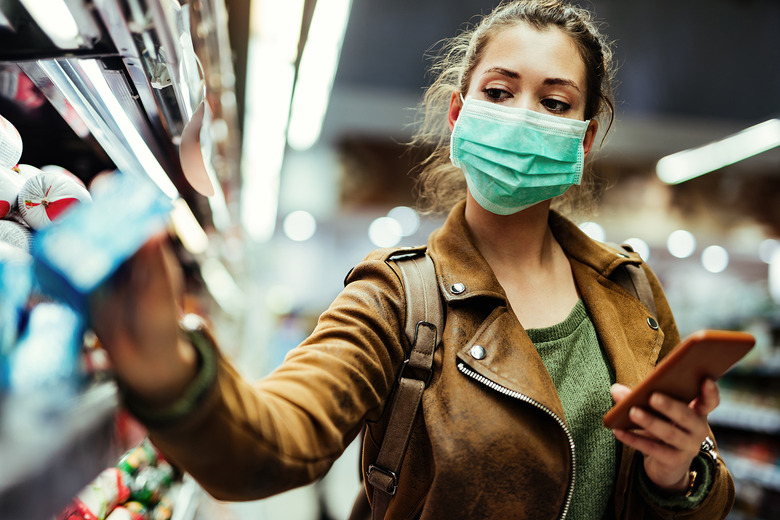Dr. Fauci Just Gave Us Some Pretty Scary News About Coronavirus Vaccines
- The first coronavirus vaccine may not be the miracle cure we've been hoping for, Dr. Fauci said recently.
- A coronavirus vaccine would only need to work 50% of the time to get a stamp of approval from the FDA.
- The first coronavirus vaccine may not eliminate COVID-19, but it still would help control it.
With the coronavirus still surging across dozens of states, it's almost as if we endured a three-month quarantine for nothing. Due to a variety of factors — from people not wearing masks to states opening back up too early — the rate of new coronavirus cases today is 2-3 times higher than it was a few months ago. Just a few weeks back, the United States saw a record-setting 70,000 new coronavirus cases over a 24-hour period. As it stands now, the total number of coronavirus cases in the U.S. is steadily approaching 5 million.
It's since become clear that the U.S. can't move past the coronavirus by simply adhering to basic safety guidelines. In turn, we're fast approaching a point where a coronavirus vaccine may be our only hope.
The good news is that early clinical trials of potential coronavirus vaccine candidates have yielded encouraging results. Moderna, for instance, believes it will complete enrollment for its Phase 3 trial of a coronavirus vaccine by next month. The bad news, though, is that a coronavirus vaccine — at least the first incarnation of it — may not be the panacea we've been led to believe.
To this point, Dr. Anthony Fauci during a recent Q&A session at the Brown University School of Public Health articulated that the first coronavirus vaccine might only be 60% effective, if not lower. Not one to mince words, Fauci said that the probability of a coronavirus vaccine being 98% effective is "not great."
"You've got to think of the vaccine as a tool to be able to get the pandemic to no longer be a pandemic," Fauci explained, "but to be something that's well controlled."
That said, Fauci said a coronavirus vaccine that is only 50% effective would still be acceptable and liable to be given the green light by the FDA.
Public health officials and scientists expect to know whether at least one of the numerous potential Covid-19 vaccines in development worldwide is safe and effective by the end of December or early next year, though there is never a guarantee. Drug companies Pfizer and Moderna both began late-stage trials for their potential vaccines last week and both expect to enroll about 30,000 participants.
There's also a chance the first coronavirus vaccine may not even be able to prevent someone from being infected in the first place. Rather, it may only prevent an individual from experiencing some of the coronavirus' more severe symptoms.
Efficacy aside, Fauci earlier this week said that the United States — in a best-case scenario — would have tens of millions of COVID-19 vaccine doses ready to go by early 2021. If that actually pans out, Fauci anticipates that life in the United States will return to normal by the middle of next year at the soonest.
